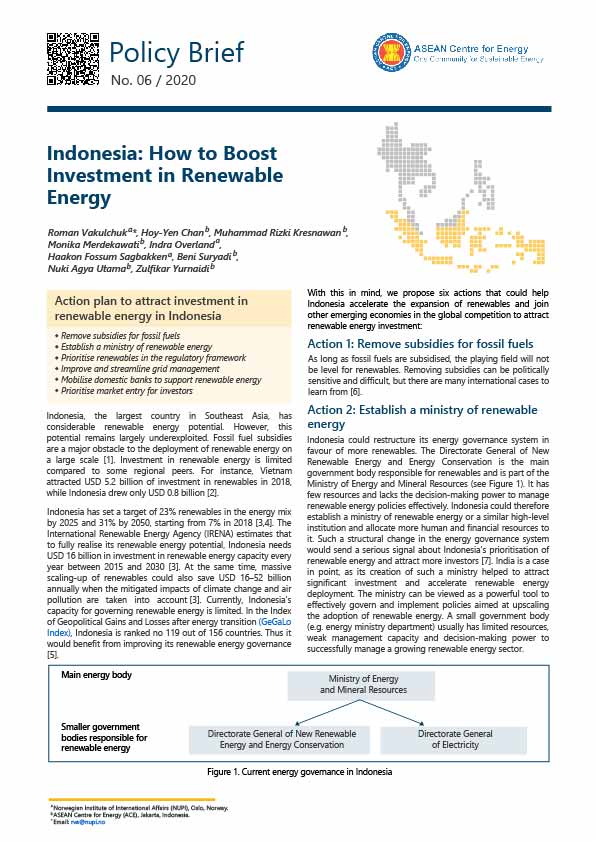
Category
Tag
Author
Roman Vakulchuk, Hoy-Yen Chan, Muhammad Rizki Kresnawan, Monika Merdekawati, Indra Overland ,
Haakon Fossum Sagbakken, Beni Suryadi, Nuki Agya Utama, Zulfikar Yurnaidi
Indonesia, the largest country in Southeast Asia, has considerable renewable energy potential. However, this potential remains largely underexploited. Fossil fuel subsidies are a major obstacle to the deployment of renewable energy on a large scale. Investment in renewable energy is limited compared to some regional peers. For instance, Vietnam attracted USD 5.2 billion of investment in renewables in 2018, while Indonesia drew only USD 0.8 billion.
Indonesia has set a target of 23% renewables in the energy mix by 2025 and 31% by 2050, starting from 7% in 2018 . The International Renewable Energy Agency (IRENA) estimates that to fully realise its renewable energy potential, Indonesia needs USD 16 billion in investment in renewable energy capacity every year between 2015 and 2030 . At the same time, massive scaling-up of renewables could also save USD 16–52 billion annually when the mitigated impacts of climate change and air pollution are taken into account . Currently, Indonesia’s capacity for governing renewable energy is limited. In the Index of Geopolitical Gains and Losses after energy transition (GeGaLo Index), Indonesia is ranked no 119 out of 156 countries. Thus it would benefit from improving its renewable energy governance . With this in mind, we propose six actions that could help Indonesia accelerate the expansion of renewables and join other emerging economies in the global competition to attract renewable energy investment.
Action plan to attract investment in renewable energy in Indonesia